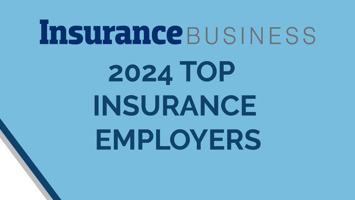Ellerbrock-Norris has been named to the list of Top Insurance Employers of 2024 by Insurance...
The Best Health Insurance for Small Business: A Strategic Guide for Companies with Under 50 Employees

Finding the best health insurance for small business can leave you feeling handcuffed. Fully funded and level-funded plans offer little effort, but premiums only seem to go up and to the right, especially as you grow. Self-funded options seem daunting and could potentially be a heavy lift.
So what do you do?
Health insurance remains one of the most valuable investments you can make – supporting your employees’ wellbeing while strengthening your company’s stability and success.
The right plan structure can help you control costs, reduce turnover and create a workplace that attracts and retains great people. More than that, it can complement your broader business goals – helping you protect your team, your profits and the future you’re building.
Strike the right balance between cost, coverage and care – so you can choose the best health insurance for small business and build a foundation that fuels long-term growth.
Why Choosing the Right Health Insurance Matters
Health insurance is a hefty line item on your budget, often coming in at No. 2 in terms of cost behind payroll. Yet, a well-structured plan is one of the smartest investments you can make in your people and your growth.
Here are a few key benefits of choosing the best health insurance for small business:
- Recruitment and Retention: Great benefits attract great people. In today’s job market, health coverage isn’t a bonus – it’s an expectation. Without it, keeping or hiring top talent becomes much harder.
- Productivity and Morale: Like we’ve talked about in past blogs, healthy employees are more present, more engaged and more motivated. When your team feels supported, everyone wins.
- Cost Control: The right funding model helps keep premiums predictable and protects your bottom line.
- Tax Advantages: A strong plan doesn’t just help your employees. Many small business health plans offer tax deductions for you and tax-free benefits for them.
The goal is to find a structure that fits your budget, supports your team and strengthens your company year after year.
Learn other ways we can help you manage your businesses health insurance costs.
Factors to Consider When Choosing the Best Health Insurance for Small Business
No two businesses are alike. Before deciding which option offers the best health insurance for small business, take time to consider these key factors:
- Employee Demographics and Health Needs: Younger teams might benefit from level funded or reimbursement models, while older workforces often prefer stability.
- Budget and Risk Tolerance: Fully insured plans offer simplicity but may cost more. Level funded and Health Reimbursement Agreement (HRA) options offer control and savings but require more involvement.
- Administrative Capacity: If your business doesn’t have HR support, you may opt for a simpler model or find advisory help for compliance and enrollment.
- Retention and Culture Goals: The right health plan should reinforce your culture and show employees they’re valued.
- Long-Term Strategy: Think beyond this year’s renewal. Your benefits strategy should align with growth, retention and financial goals.
When viewed holistically, your health insurance strategy becomes more than a compliance item — it becomes a cornerstone of your company’s resilience and success. To make the most impact, it should also connect with broader areas of your business, including:
- Compliance requirements (think: ACA, ERISA, HIPAA)
- Key personnel and succession planning
- Business continuity and growth strategies
- Long-term retirement and exit planning
Now that you know what to consider, let’s dive into the plan options.

Option 1: Fully Insured Small Business Health Insurance
A fully insured plan is the most traditional model – and often the first option people consider when looking for the best health insurance for small business. You pay a fixed premium to an insurance carrier, and in return, the carrier assumes the financial risk of your employees’ medical claims.
Why a Fully Insured Plan Works
- Predictable costs: Fixed monthly premiums make budgeting simple.
- Hands-off management: The carrier handles compliance, claims and renewals.
- Minimal oversight: Little administrative work is required from you or your team.
Potential Fully Insured Plan Drawbacks
- Rising premiums: Costs can increase each year, especially after large claims.
- Limited flexibility: You’re confined to the carrier’s plan designs and networks.
- Possible overpayment: If your employees are generally healthy, you might be paying more than necessary.
For businesses with fewer than 50 employees, fully insured coverage often feels like the safest route – and for some, that simplicity is worth it. But it can also be one of the most expensive long-term options. The key is knowing whether the stability of fixed premiums outweighs the potential for higher overall costs.
Option 2: Level Funded Small Business Health Insurance
A level funded plan is a flexible approach that blends the structure of traditional coverage with the savings potential of self-funding – making it a strong option for those exploring the best health insurance for small business.
For this type of plan, you pay a consistent monthly amount that covers three areas: employee claims, stop-loss protection and administrative costs.
If claims come in lower than expected, you could receive a refund or credit at year-end. If they’re higher, your stop-loss insurance caps your costs.
Why a Level Funded Plan Works
- Transparency: You gain a clearer view of how your team uses healthcare.
- Potential savings: Healthy years can lead to partial refunds.
- Customization: You can tailor plan design and benefits to fit your team, boosting satisfaction and engagement.
Potential Level Funded Plan Drawbacks
- More involvement: You’ll need to be comfortable with some added administrative work.
- Variable results: Payments stay consistent but claim patterns can affect refunds.
Like any approach, level funded plans come with tradeoffs. It’s important to weigh whether the added insight and flexibility outweigh the extra responsibility that comes with managing them. For growing companies ready to take a more strategic approach to cost management, this model can be a powerful long-term solution.
Option 3: HRAs & Reimbursement Model Health Insurance for Small Business
Not every small business can – or should – manage a traditional group health plan. For many, Health Reimbursement Arrangements (HRAs) and similar reimbursement models are a smart alternative to consider when exploring the best health insurance for small business. They offer flexibility, cost control and simplicity – all without the administrative burden of a group policy.
How HRAs & Reimbursement Models Work
An HRA lets you reimburse employees for qualified medical expenses or individual health insurance premiums on a tax-free basis. The two most common types are:
- QSEHRA (Qualified Small Employer HRA): For businesses with under 50 employees that don’t offer a group plan.
- ICHRA (Individual Coverage HRA): Available to employers of any size, allowing reimbursement amounts to differ by employee class.
Why HRAs & Reimbursement Models Work
- Predictable costs: You set clear monthly budgets.
- Employee choice: Team members can choose the plan that best fits their needs.
- Tax benefits: Reimbursements are tax-free for both employer and employee.
Potential HRA & Reimbursement Model Drawbacks
- Individual responsibility: Employees must purchase and maintain their own coverage.
- Education required: Clear communication is essential to help employees navigate their options.
For small businesses that value flexibility and predictability, HRAs and reimbursement models can be an excellent alternative – especially when paired with strong communication and compliance support.
Protect Your Purpose with the Best Health Insurance for Small Business
At Ellerbrock-Norris, we believe the best health insurance for small business isn’t just a policy – it’s part of a bigger plan to protect your people, profits and purpose.
Your employees are your greatest asset, and protecting their health protects your business. We help small business owners design benefits that create stability, strengthen retention and support growth – all within the larger framework of managing risk strategically.
Our approach looks at every angle, connecting compliance, culture and cost management to build a benefits strategy that works today and evolves with your business.
Ready to get started? Let’s chat.




